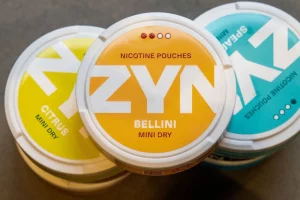The world of oral and nasal tobacco use encompasses a variety of products, each with its own history, preparation, and cultural significance. Among these, snuff holds a prominent place, while the term “snuns,” though perhaps less familiar, hints at the ever-evolving landscape of tobacco terminology. Let’s delve into the intricacies of snuff, and then unravel the mystery surrounding the word “snuns.”
The Allure of Snuff
Snuff, in its essence, is finely ground or pulverized tobacco intended for nasal or oral use. Its origins can be traced back centuries, with evidence of tobacco use in powdered form found among indigenous populations of the Americas click here. As tobacco cultivation and trade spread across the globe, snuff gained popularity in Europe, becoming a staple among the aristocracy and eventually filtering down to other social classes.
The preparation of snuff is an art in itself. Different methods and recipes exist, resulting in a wide array of flavors, aromas, and textures. Some snuffs are made from air-cured tobacco leaves, while others undergo fermentation or roasting processes. Flavorings, such as essential oils, spices, and fruit extracts, are often added to enhance the sensory experience.
Nasal snuff, typically a dry, finely ground powder, is inhaled into the nasal passages. This method allows for rapid absorption of nicotine into the bloodstream, resulting in a quick stimulant effect. Oral snuff, on the other hand, is a moist, coarser form of tobacco that is placed between the gum and cheek. This method provides a slower, more sustained release of nicotine.
What accounts for snuff’s enduring appeal? Beyond the nicotine rush, many users appreciate the ritualistic aspect of snuff taking, the distinct flavors and aromas, and the social connections that can form around sharing snuff with others. The act of taking a pinch of snuff can be a moment of quiet contemplation, a way to punctuate the day, or a shared experience that brings people together.
Of course, it’s crucial to acknowledge the potential health risks associated with snuff use. Like all tobacco products, snuff contains nicotine, which is addictive. Long-term snuff use has also been linked to an increased risk of certain cancers, gum disease, and other health problems. Responsible use and awareness of these risks are paramount.
Decoding “Snuns”
Now, let’s turn our attention to the intriguing term “snuns.” Unlike “snuff,” which has a long and well-documented history, “snuns” appears to be a more recent and less established term. A search for its definition reveals a few possibilities, often associated with slang or internet subcultures.
One interpretation suggests that “snuns” is simply a playful or informal way of referring to snuff. Think of it as a nickname, a casual way to mention snuff among friends or within a specific community. This interpretation aligns with the tendency for language to evolve and create new terms for familiar concepts.
Another possibility is that “snuns” refers to a particular type or brand of snuff. In the ever-expanding world of tobacco products, new varieties and brands emerge constantly. It’s conceivable that “snuns” is the name of a specific snuff blend or a regional variation of snuff that is known only within a limited circle.
It’s also worth considering the possibility that “snuns” is a misspelling or a typographical error. In the age of digital communication, typos and autocorrect errors are common occurrences. It’s possible that someone intended to write “snuff” but inadvertently typed “snuns” instead.
Without further context, it’s difficult to definitively pinpoint the meaning of “snuns.” However, by considering the various possibilities, we can gain a better understanding of the term’s potential origins and usage. It may be slang, a brand name, or simply a typo.
Ultimately, the world of tobacco terminology is complex and ever-changing. While “snuff” has a rich history and a clear definition, “snuns” remains a bit of a mystery, a reminder that language is constantly evolving and adapting to new contexts and subcultures. If you encounter the term “snuns,” it’s best to ask for clarification to ensure you understand its intended meaning.


